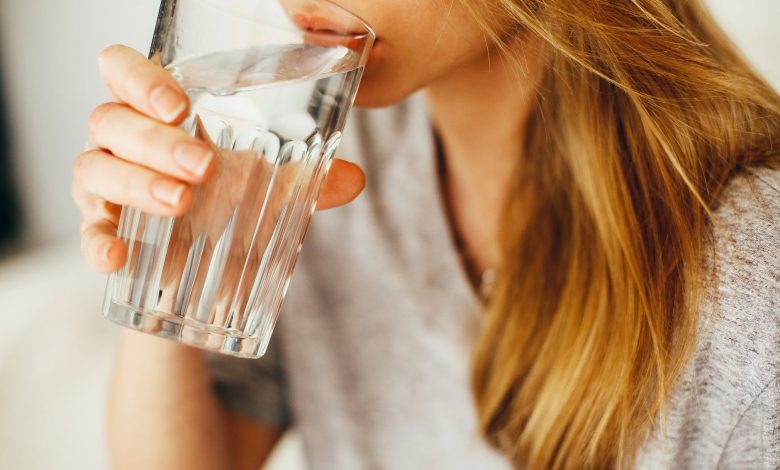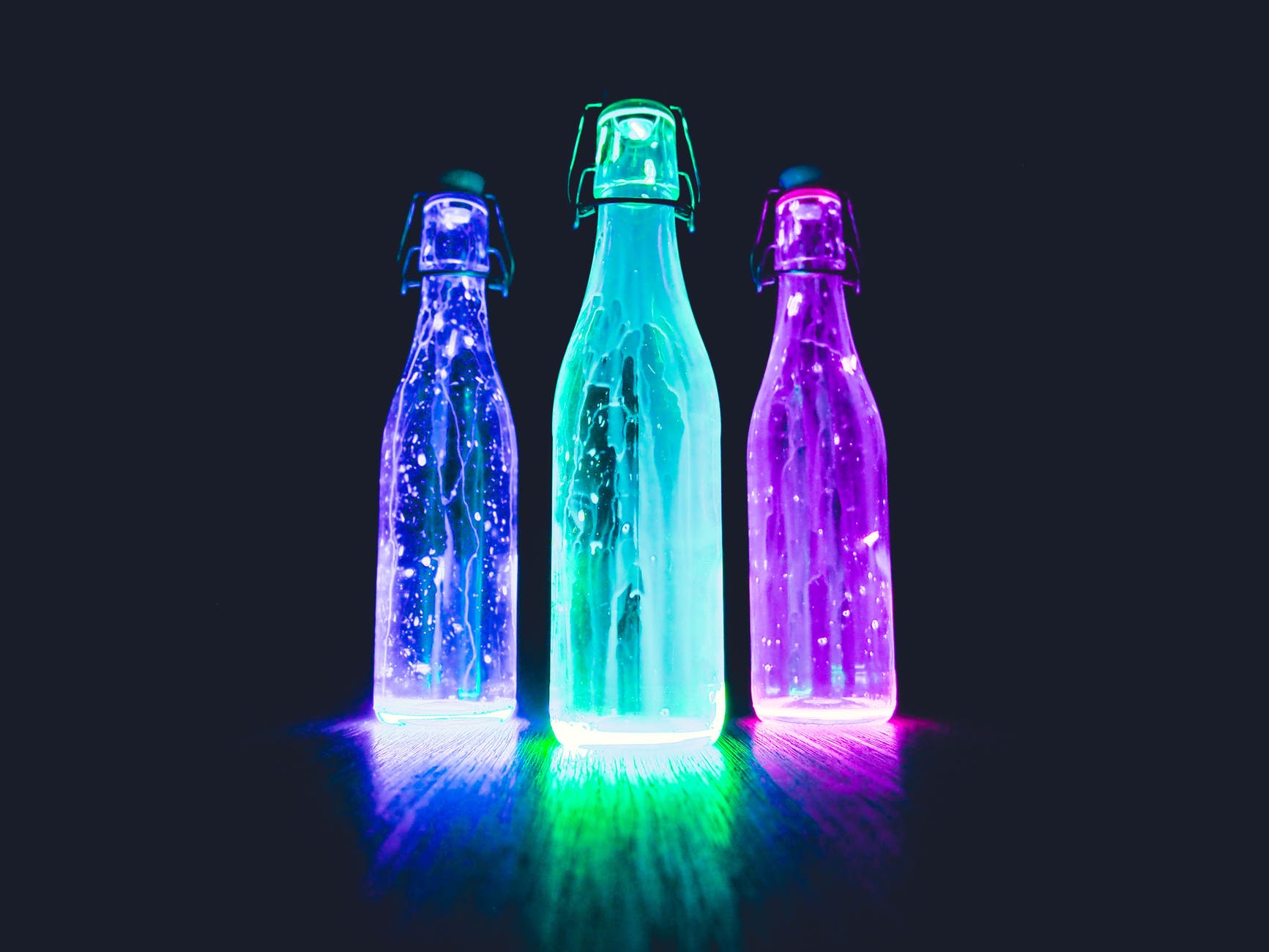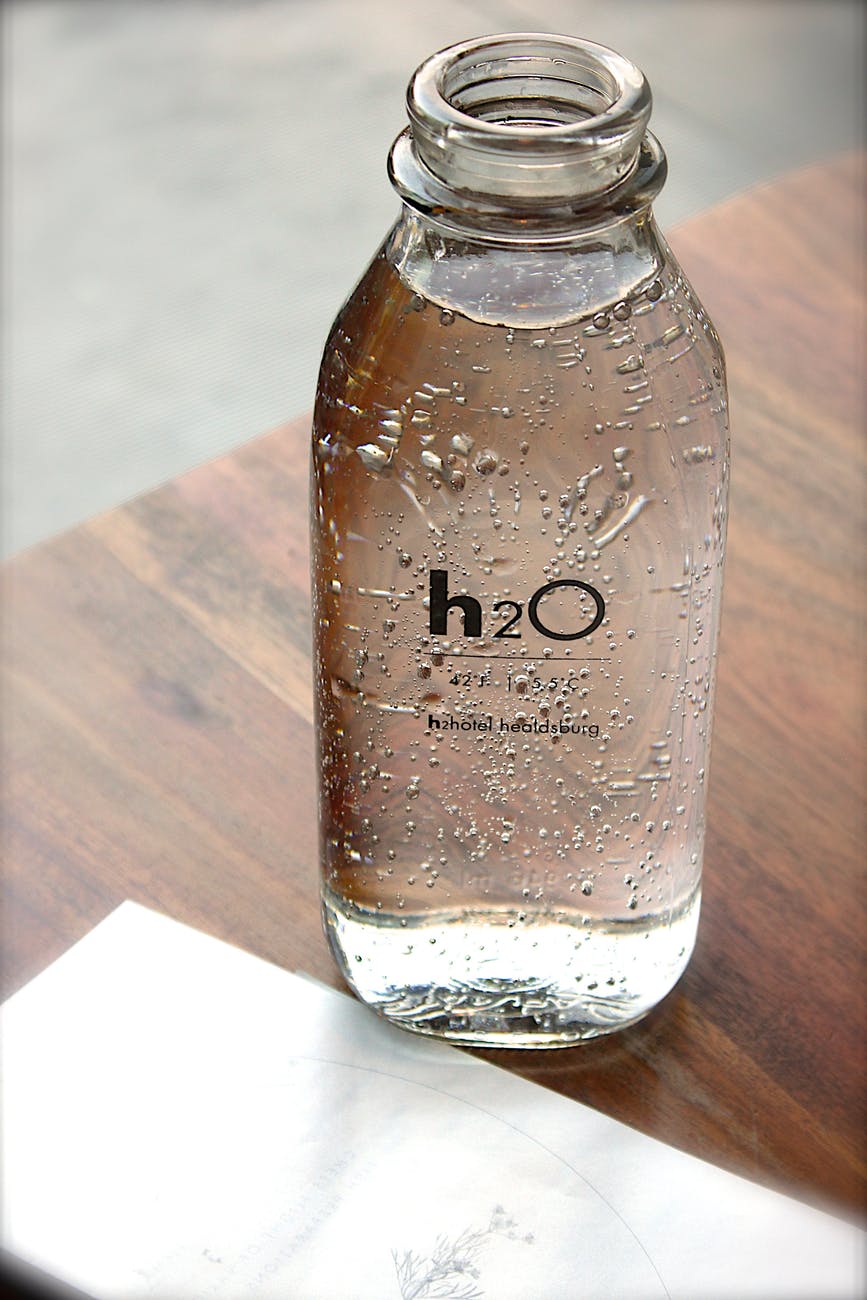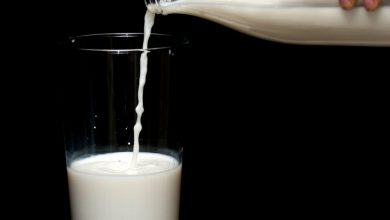
Water & Weight: How to Consume Water the Right Way for Healthy Weight Loss
We have all been taught in school that humans can live for days without food, but not without water. It is for a reason why water is called the “elixir of life.” But apart from being essential for survival, water also offers innumerable health benefits. Yes, something as plain and simple as water, which has nothing – no calories, no vitamins, no proteins, can impact your health in more ways than you can think of.
You must have received this advice to drink enough water throughout your life from numerous people. Some say drink up to two liters of water daily to keep yourself hydrated; others say drink only when you feel the need and don’t overload your system. What then is the right way to consume water for a healthy living? And how does water affect your body weight and weight loss?
To answer these questions, we must first understand what water does to your body.
Why Does the Body Need Water?
Well, if you were attentive enough during those biology classes, you already know that the human body is made up of almost 60% water. All our cells, tissues, and organs thrive on water, and it also helps maintain our body temperature and other bodily functions.
With our body performing its day to day functions, we lose water through exhalation, sweating, and digestion. That is why the water level in our bodies needs to be constantly replenished. People living in warmer or drier climates need to consume more water than others. The amount of water you consume also depends on your lifestyle. When you’re involved in heavy activities, you sweat and breathe more, and so need more water.
So, what does water do to your body? Well, a lot of things!
Protects your Tissues and Joints
Keeping yourself hydrated is essential to maintain the lubrication in your joints and to keep your tissues moist. Lack of water in the body dries out your joints, which, in the long run, may cause severe problems. Dehydrated tissues also tend to cause cramps, which can be very painful. To avoid your eyes, skin, mouth, or joints from drying out, it is necessary to consume an optimum amount of water.
Helps Remove Waste
Your body generates waste daily as a result of all bodily functions. These wastes are removed from the body through perspiration and excretion. Water plays a very important role in this too. Water helps to flush out waste from your kidneys, liver, and intestines.
Aids Digestion
Water is essential for proper digestion as well. You know that digestion starts with saliva, which itself is water-based. Apart from that, water is required to help with the digestion of soluble fibers and aid better absorption of nutrients in the body. Drinking water the right way with your food can improve your metabolism.
Though these should be reasons enough to motivate you to drink more water, we are here to highlight some other benefits of drinking water the right way. If you have heard that drinking water can help you with weight loss, you have heard it right. But if you have tried it and failed to see results, you are probably not doing it right.
What could be the wrong way of drinking water? If you are drinking water to lose weight, there are indeed right and wrong ways of doing it. Let’s find out what you should and should not be doing.

When to Drink
Although you can drink water whenever you feel like, you have to be a little mindful when you should be drinking water to achieve weight loss. It is suggested by most health and nutrition experts that drinking water before a meal helps you lose weight. The science behind this is extremely simple. Drinking water before food makes you feel fuller, which means you don’t overeat. This helps keep a check on your calorie intake.
In fact, researchers at the University of Birmingham found that drinking about 400 milliliters of water 30 minutes before a meal helped obese adults lose weight. They studied 84 volunteers suffering from obesity, of which 41 were asked to follow this routine of drinking water before a meal, and the others were asked just to imagine they were full. At the end of 12 weeks, they found that the volunteers drinking water before meals lost, on average, 2.8 pounds more than the other group.
It is found that drinking water before just one meal every day reduces intake of 27,000 calories in a year. So, if this calculation is to be trusted, imagine how much weight you could lose by simply drinking a glass of water before every meal.
Apart from drinking water before meals, you should also keep drinking small amounts of water throughout the day. Not only will it keep you hydrated and energized, but it will also suppress cravings and prevent unhealthy snacking between meals as it keeps you feeling full.
Though drinking water immediately after a meal is not suggested, as it tends to dilute the digestive juices, having a glass of water about 30 minutes after a meal can aid digestion and help absorb nutrients better.
What to Drink
Well, of course, we are discussing the benefits of drinking water here, but even water is available in diverse forms these days. Most of the food you eat also has some water content. We often make this dire mistake of replacing water with fruit juices, flavored water, or even sodas sometimes. Since all of this has water, it is not uncommon to think that they can give you the same benefits as water.
But if you are trying to lose weight, this is not going to help. Juices, sodas, and even flavored water have calories that count. These cannot be substitutes for drinking plain water. Many flavored drinks of water are found to have artificial sweeteners or sugar in them. Even the zero-calorie-flavored water is found to be harmful to your overall health if consumed regularly, as artificial flavoring agents are added anyway. Fruit juice, without the fiber, is nothing but sugar. And carbonated drinks like soda, even if unsweetened, don’t do you much good either. They are found to rather dehydrate you instead of hydrating.
What Alternatives to Try
So, all said and done, there cannot be an alternative for pure water when it comes to weight loss. If you find plain water too boring or can’t get yourself to drink enough, pep it up with something that aids weight loss. For instance, add a slice of lemon to it. The pectin in lemon helps reduce cravings, and studies show that lemon can even improve metabolism. You could also make these trending detox infusions by adding certain ingredients, like cucumber and mint leaves, to your water. We can’t say for sure if these ingredients help in detoxifying, but they can cause no harm for sure. They add no calories to your water but do add some natural flavor to make it more enjoyable.
You could also try drinking herbal teas made very easily at home if you can’t drink too much plain water. Ginger tea, turmeric tea, lemongrass tea, and other such calorie-free natural drinks can be consumed now and then instead of water. They can be hydrating, avoid weight gain, and also have added health benefits when consumed judiciously.
Another great replacement for plain water is coconut water. It does contain some natural sugars too, but it also contains potassium, which is essential for our bodies. Coconut water can provide some much-needed minerals and re-hydrate you after light activity. So replacing water with coconut water occasionally can be a welcome change. But you have to be mindful not to overdo it, as the calories can add up.

Iced Water or Warm Water?
Different people have different answers when this question arises. Some say that ice cold water helps in increasing metabolism, while some others believe that warm water is absorbed better by the body and aids digestion. Let us try and find out why.
According to research carried out by the University of Washington, you tend to burn eight calories more by drinking a glass of ice-cold water as compared to drinking water at room temperature. The reason behind this additional calorie loss is considered to be that the body has to use up more energy to maintain its normal temperature after you consume ice-cold water. Although those eight calories per glass of ice-cold water don’t add up too much in a day, the theory that ice cold water burns more calories cannot be totally rejected.
For warm water, on the other hand, the justification is just the opposite. As you drink warm water, your body temperature goes up. To counter this and bring your body temperature back to normal, your metabolism is activated so that your internal temperature goes down. Some also advocate drinking warm water, as according to Ayurveda, warm water is supposed to be soothing to the stomach and helps with digestion.
Though none of these theories have been firmly established yet, we cannot deny that they do make some sense. So we can’t be sure yet if these are just myths or have some credibility. In any case, your body just needs water. Whether you prefer to drink it ice cold, at room temperature, or warm is up to you, as long as it doesn’t cause you any other discomfort.
How Much to Drink
The suggested daily intake of water that you come across on most health forums is a very generalized one. Most would say that an average adult should drink about two liters of water every day. But the amount of water you consume depends on a lot of other factors. It varies from individual to individual.
For instance, some people sweat more than others. They will need to consume more water than others as well. Some people exercise regularly, while some spend most of their time in a sedentary, air-conditioned environment. They both need different amounts of water consumption in a day.
Hence, it cannot be assumed that you need to drink two liters of water every day if you want to lose weight. Studies have suggested that, on average, drinking one to two liters of water per day can help in weight loss. But the best thing to do here would be to have a routine of your own.
Drink whenever you are thirsty or to avoid being thirsty. Make a few glasses of water mandatory every day, such as one on an empty stomach every morning and one before and after every meal. This way, you should be able to maintain an optimum amount of water consumption throughout the day for a healthy weight loss.
Water Retention and Weight Gain
When we talk about body weight, apart from muscle mass, fat, and bone weight, we also have the water content included in it. Your body has to retain some water in it for normal functioning, and this water adds to your weight. Excessive water retention can make you look heavier and reduce your muscle tone and make you look out of shape.
But the irony here is that drinking enough water can help you reduce your water weight. That is because when the body is dehydrated, it retains more water as a method of storing water for future needs. If you drink enough water, the body doesn’t need to hold on to this extra amount of water.
There are also certain foods that cause excessive water retention. Food rich in sodium, such as salty food, food containing sodium compounds like MSG or baking soda, and processed food, play a major role in causing water retention in the body.
Carbs are also found to cause water retention. When you eat excess carbs, the energy that is not used is stored in the body as glycogen, and each gram of glycogen requires three grams of water attached.
So, even if you are drinking enough water, the wrong diet could cause you to retain more water and cause weight gain instead of weight loss. To increase your chances of a healthy weight loss by drinking water, avoid including such foods in your diet. This means you should avoid, or at least limit, the consumption of canned food, pickles, chips, fast food, bread, pasta, and even Chinese food, as far as possible.

How to Make Sure You’re Drinking Enough
Despite everything we’ve said, it might be difficult to keep track of how much water you’re consuming every day, particularly if you have a busy schedule. You have to find out your own ways of ensuring that you are having enough and pay attention to what your body tries to say to you.
The first thing to do here is to always carry a bottle of water with you. Whether you’re at home lying on the couch or at work fixated to your computer, keep a water bottle by your side. When you see the bottle, you will remember to drink. Also, make sure to refill as soon as the bottle is empty. This is where most people procrastinate and gradually lose the habit.
Next, although this might sound obvious, you need to remind yourself that you need to drink more water on hot days or when you are exercising. You lose a lot more water on these occasions, and it is important to replenish if you want your weight loss to sustain.
You can also maintain optimum water consumption by eating foods that are rich in water content. There are many fruits and vegetables that contain a good quantity of water. Cucumbers, watermelons, tomatoes, spinach, and broccoli, among others, have very high water content. Adding these foods to your diet not only increases your water intake, but also provides you with healthy nutrients and fibers that are beneficial for weight loss.
Another very basic but smart way to ensure you’re drinking enough is to drink a glass of water for every bathroom break you take. Doing this every time will slowly turn it into a ritual, and you won’t need to be reminded to drink more water.
You can also take the help of a fitness app to keep track of how much water you are consuming in a day. You can add to the app every time you drink a glass of water, and at the end of the day, check whether you have achieved your target. This can also be a motivation for you to drink enough water, just to see that target achieved.
Now, this should be a last resort, but you can make unhealthy drinks a little healthier by adding water. If you have to have a sugary or carbonated drink once in a while, dilute it by adding some water or ice. This way, you increase water consumption and reduce the harmful stuff by a bit.
Drinking enough water for a healthy weight loss will require some amount of dedication and persistence. It might sound simple, but like all other good habits, this also takes some effort to sustain. But once it becomes a way of life for you, you’re sure to reap the benefits.



